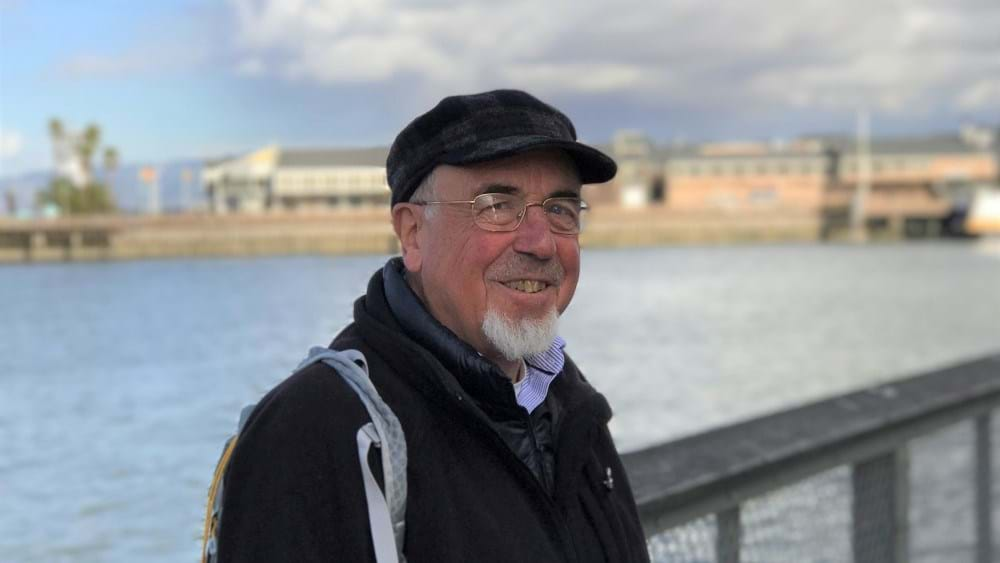Alvin Nienow, 1937-2022

ALVIN NIENOW, a pioneer of biochemical engineering, has died aged 85.
Alvin was brought up in East Acton, West London, and attended St Clement Danes School where his main interests at that time were sports, notably cricket and table-tennis. Alvin graduated with a first-class honours degree in chemical engineering from University College London (UCL) in 1958 and went on to become emeritus professor of biochemical engineering at the University of Birmingham, an honorary professor at UCL and a visiting professor at both Loughborough and Aston universities.
Alvin was a leading chemical and biochemical engineer, and whilst he demonstrated key expertise in crystallisation and gas fluidisation, he is particularly distinguished for his world-leading expertise in mixing and transport phenomena in stirred reactors and bioreactors. Alvin’s seminal work on the impact of hydrodynamic shear on mammalian cells significantly advanced our understanding of large-scale suspension culture, scale-up and bioreactor design, which today forms the basis of biologics manufacturing.
His first paper on biochemical engineering was with Peter Dunnill and Colin Thomas in 1979 on the previously-reported ‘shear damage’ to enzymes from mixing; they did not find any. Through what became Alvin’s hallmark of careful analysis and experimentation, they showed that the loss of enzyme activity was associated with exposure to a gas-liquid interface rather than hydrodynamic shear. This aspect of mixing remained a core focus area and he broadened this to address other bioprocesses involving plasmid DNA manufacture and the cultivation of various bacteria, yeast and mycelia forming organisms. In the latter stages of his career, he supported and mentored early career researchers working on the culture of stem cells on microcarriers and the scale-up of T- and CAR-T cells in bioreactors.
His influence in biochemical engineering went beyond research and helped shape education too. He joined UCL as a lecturer in 1963, completed his PhD entitled “Solid-liquid dissolution in a turbine agitated vessel” in 1968, and was instrumental in establishing UCL’s undergraduate biochemical engineering degree programme which started in 1972 with just six students. He strongly supported the department changing its name to The Department of Chemical and Biochemical Engineering in the late 1970s.
In 1980, Alvin was awarded a chair at the University of Birmingham where he was the first professor of biochemical engineering in the school of chemical engineering. He was appointed director of the SERC/BBSRC Centre for Biochemical Engineering from 1989 to 1999, and remained at the university until he retired in 2004 when he was made an emeritus professor in biochemical engineering.
Across his career, Alvin published more than 400 papers, supervised more than 60 research students from all corners of the globe and was awarded more than 80 research grants. He consulted and taught courses for more than 50 companies in the UK, Europe and the US.
In recognition of his achievements, he was elected a Fellow of the Royal Academy of Engineering in 1985; he was awarded the Donald Medal by the IChemE for outstanding services to biochemical engineering in 2000; the Peter Dunnill Award by the UK BioIndustry Association (BIA) in 2018 for outstanding contribution to UK bioprocessing. To mark the occasion of his retirement in 2004, a Special Issue of Transactions of the Institution of Chemical Engineers, Part A, was published in his honour. He was awarded honorary doctorates by the universities of Loughborough and West Pomerania (Szczecin, Poland).
Alvin was a significant proponent on collaboration between disciplines, and promoted his belief that biochemical engineers and biological scientists should work together from a very early stage of development to maximise the impact of their work. He once commented that “this interaction has to adopt a ‘no silly questions’ approach; the engineer can ask very basic biological questions and vice versa, and they must be answered with care, and respectfully.”
Outside academia, Alvin maintained his love of sport, including racquetball, skiing, cricket, walking and surfing (always on a 1960s wooden belly-board) and was known to live by the mantra “we work hard and we play hard”. He loved music, especially jazz, and was often the first on the dancefloor and the last one off it. And he could speak at length regarding the transport phenomena of reverse swing bowling, ideally over a pint of real ale or any other local tipple.
Alvin passed away on 22 October 2022 after a short illness. He will be deeply missed by all those who knew him in the biochemical engineering and fluid mixing communities. Our thoughts are with his wife, children and grandchildren.
Recent Editions
Catch up on the latest news, views and jobs from The Chemical Engineer. Below are the four latest issues. View a wider selection of the archive from within the Magazine section of this site.




